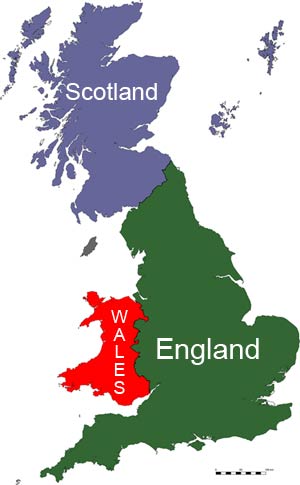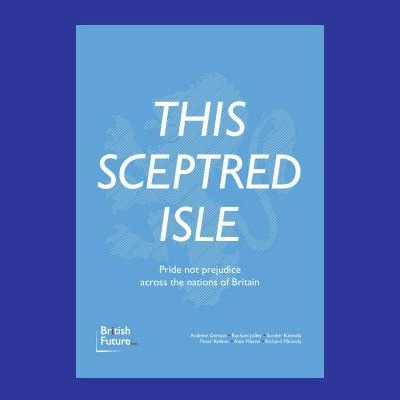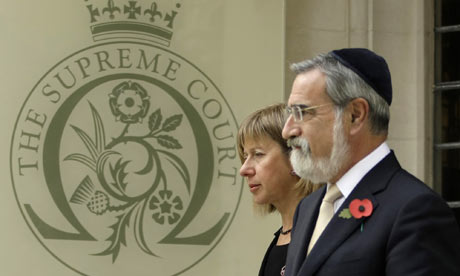
In the small media flurry of anti-English articles surrounding St George’s Day and the start of taking evidence by the Government’s Devolution Commission, this article was published uncritically in the Daily Telegraph.
Here is the article:-
“For England’s sake we still have to answer the West Lothian Question
Recognising that the UK is more than just Greater England is the key to saving it
By Jim Gallagher, 18 Apr 2012
Holyrood has finally approved, in the Scotland Bill, the biggest transfer of powers ever from Westminster but the argument over independence and the relationship between Scotland and England continues.
From an English perspective the time has come to do something about the West Lothian Question. But what is the answer? Gladstone thought this puzzle was beyond the wit of man: but in a research paper published today – England and the Union - I offer an answer.
When asked, most people think it can't be right to allow Scottish MPs to vote on English domestic issues, when they are devolved in Scotland. The same was true for many years in Northern Ireland and, now the Cardiff Assembly has real legislative powers, it matters for Wales as well.
The problem is that Westminster is the UK's Parliament but it's England's Parliament too. The same goes for the Government.
So why not have an English Parliament – wouldn't that be tidy all round? It may be entirely logical but it is entirely wrong. The most prominent supporter of an English Parliament is Alex Salmond, because he knows it's the way to end the UK.
An English Prime Minister, controlling most public spending, would soon be a bigger figure than David Cameron, the UK's Prime Minister.
Westminster would no longer be the focus of our national politics. Nation would treat with nation and the union would become a thing of the past.
The Union on these islands is worth preserving: future generations would be astonished at our ineptitude if we let it disintegrate in response to pressure from nationalists who don't even command majority support in Scotland.
But it's a lopsided creature, with England 85 per cent of the whole, dominant economically and politically. Nothing is going to change that, and it explains why the English seldom think much about it. For the most part, they've had no real need to distinguish between England and the UK.
But during the last 10 years the three small Celtic nations have gained a degree of political autonomy, and asserted their identities more clearly. The English needn't worry about that, but it has made them more aware of their own identity – and with that comes pressure for some sort of political recognition.
Most English people want "something" done; the problem is that there is no neat "something" to do.
One possibility is to cut the number of non-English MP's at Westminster. That's not really an answer, as some would still be there and voting. But it would make some sense if – and only if – a big part of Westminster's tax powers were given to the devolved bodies. Otherwise we break the link between taxation and representation.
The best answer lies in changes to parliamentary processes for English legislation. This takes us down the arcane byways of Commons procedure: but it can be done, and would oblige a government to pay heed to English opinion.
A variant of the plans Ken Clarke drew up for the Conservative Party in 2008 is entirely practicable. The trick is to set up a route through the Commons that involves English (or for some things maybe English and Welsh) committees at key points. All MPs would retain the same status, but certain committees could reflect only English views.
It is important that England's government should continue to be able to govern and so the new committees should be designed not to hamstring that government.
Here is how to would work. The whole House of Commons would vote on the second reading of a bill. That way the government – if it has a majority – should be able to determine the decision in principle on its bills.
But then the stages at which a bill can be amended - committee stage and report stages, should be taken in English committees, with a majority of English MP's. There would have to be some limits to the number and scope of amendments that could be made to a bill, but the government would have to accept them if it wants to get its bill through.
Such dramatic change would need a cross party consensus – it's too easy to present it as being driven by partisan advantage – but a few facts might help in a shrill debate.
First, the idea that a Tory voting England regularly has Labour governments imposed on it by the Celtic fringe is a myth. To form a stable government any party needs to win England. Other MPs are only critical when England is split down the middle.
That's seldom happened: Harold Wilson struggled on with an English minority but a UK majority for two years from 1964, and for 8 months in 1974. But since then Labour has only won when it won England.
The risk will be even less now that constituencies are to be equalised. And England-only legislation is not as common as people think. So change will neither guarantee a Tory hegemony nor cripple every Labour government.
Consensus ought to be possible. The UK lacks a convincing explanation of why and how the Union hangs together - what makes a political union work, how do we keep our deeply integrated economy and still devolve some tax powers and, hardest of all, what sort of social union are we?
Devolution made it harder to take the Union for granted. Scottish nationalism made it imperative to answer these questions. Perhaps it's fitting that it's the realisation that England is a political community too, and so the Union not just a greater England, that will make it possible to give the answers.”
Perhaps I should no longer be surprised at the duplicity of the British Political and Media Establishment but somehow I expected better of the Daily Telegraph despite its self-proclaimed “Campaign for Britishness”.
The first point to note is this article is a blatant attack on the integrity of England and the idea of Englishness by someone styling himself as a professor, who claims to write “From an English perspective…”
So I wondered who is this apparently Oxford based “Professor”?
The strap line under the article states:-
“Professor Jim Gallagher is Gwylim Gibbon Fellow at Nuffield College, Oxford”
It goes on to state that:-
“England and the Union : How and Why to Answer the West Lothian Question”, is published by IPPR. ( www.ippr.org).
The article seems to be part of the publicity for the launch of a think tank paper.
So Prof Jim’s paper is published by the IPPR - that is Labour’s favourite think tank the - Institute of Public Policy Research.
So far, so interesting but when you go to Nuffield College’s site and look up “Professor” Jim Gallagher you will find:-
“Jim Gallagher former 10 Downing Street Adviser and former Head of Justice Department, Scottish Government
Professor Jim Gallagher is a Fellow of Nuffield College, Oxford and a former head of the Scottish Justice Department. He is a Visiting Professor in the School of Law at the University of Glasgow, and Non-Executive Director of Lothian and Borders Police as well as a Council Member of the Law Society of Scotland, and a Director of a number of companies in the Financial Services sector.”
If you follow the trail further you find that “Professor” Jim Gallagher doesn’t work at Nuffield College or even work at the University of Glasgow!
In fact what is he a “Professor” of? (or for?)
Then if you consider his fellow “Gwilym Gibbon “Fellows” at Nuffield College then matters start to fall into place. Here is the list:-
“THE POLITICS GROUP AT NUFFIELD COLLEGE
Patrick Diamond, Gwilym Gibbon Research Fellow
Professor Jim D. Gallagher, Gwilym Gibbon Research Fellow
Guy Lodge, Gwilym Gibbon Research Fellow”
And here are the biographies of the other 2 “fellows”:-
“Guy Lodge, Associate Director for Politics and Power
Areas of expertise:
Political and constitutional reform in the UK
Political participation and democratic change
Contemporary British political history
Central and local government
Devolution and UK territorial politics
British elections and voting systems
National identity
Guy also leads IPPR’s partnership with the Institute of Policy and Analysis, Rwanda (IPAR).
Guy regularly comments on British politics and public policy issues in the national and international media. Recent appearances include the BBC Radio 4’s Today Programme, Channel 4 News, The Daily Politics, BBC Breakfast, Five Live and The Week in Westminster. His work has been extensively covered in the print media with recent coverage in The Times, Financial Times, Daily Telegraph, Guardian, Independent, Daily Mail, Sun, New York Times, Economist, International Herald Tribune, Prospect magazine and the Australian.
His book Brown at Ten (co-authored with Anthony Seldon) was named as one of the Independent’s political books of 2010 and was described by the Guardian as a ‘must read for anyone who wants to know what really happened in the final three years of the Labour government’.
Before joining IPPR, Guy worked at the Constitution Unit, in the School of Public Policy, University College London. He has also worked in the House of Commons and at the Fabian Society.
He is a Gwilym Gibbon Fellow at Nuffield College, Oxford University, and is also a Visiting Research Fellow at the Department of Politics and International Relations, also at Oxford University. He was educated at the London School of Economics and Political Science.
Patrick Diamond is Gwilym Gibbon fellow at Nuffield College, Oxford, and a visiting fellow in the department of politics at the University of Oxford. He is also an elected member of Southwark Council and is the former head of policy planning in 10 Downing Street and senior policy adviser to the prime minister. Recently, he was co-editor of "After the Third Way: The Future of Social Democracy in Europe.”
Dear Reader, please guess which Party was in power when two of these three “Fellows” worked at Number 10. Clue - it shares the first letter of the word ‘Liar’! In short these Gwilym Gibbon Fellowships appear to be a patronage club benefit for a certain type of politics!
Now pause a minute to consider how incestuous is the relationship between “British” politics and the “British” media that such an article, with such an author, and from such a background, could be reported in the Daily Telegraph, in such a way! The moral is that you cannot take what the British media says at face value!









